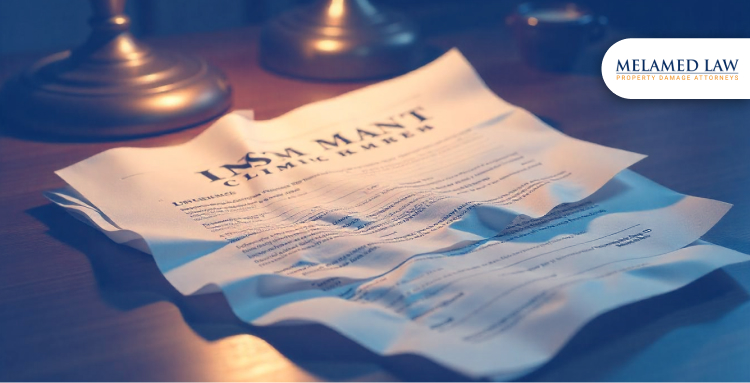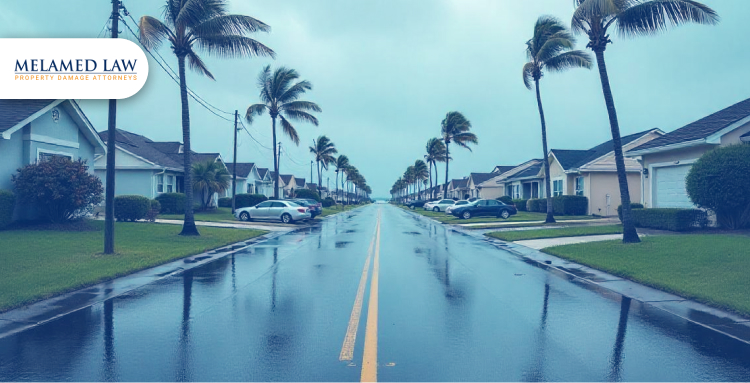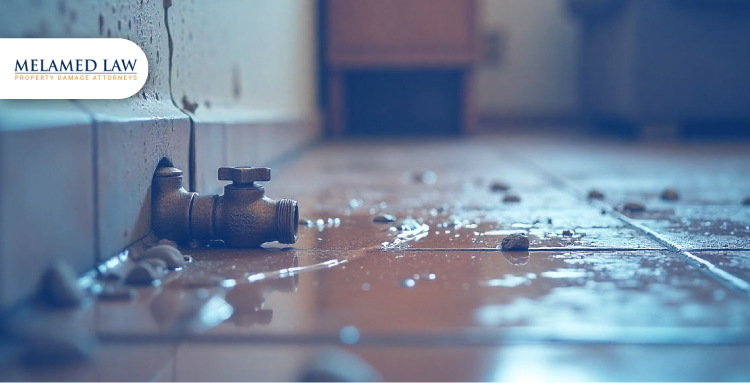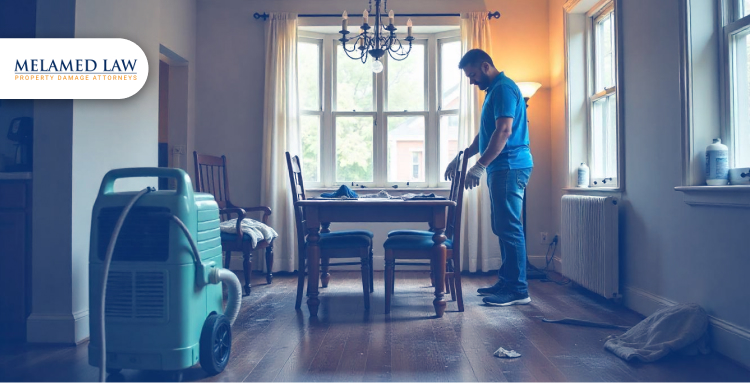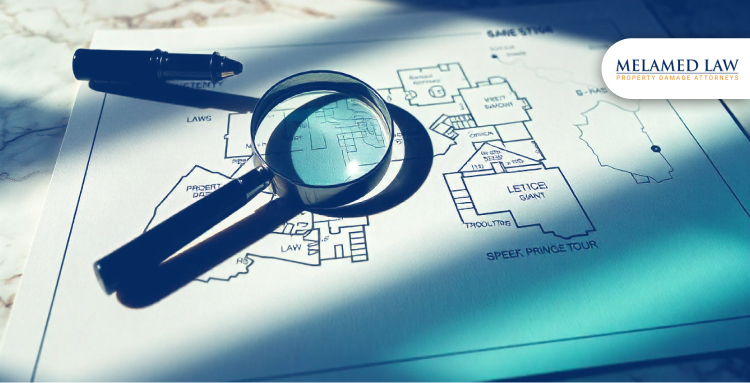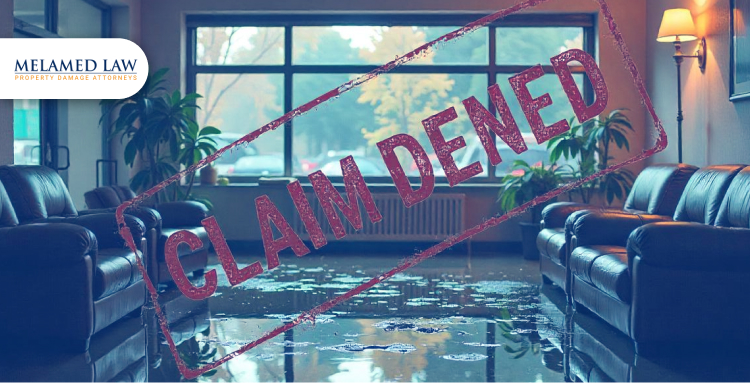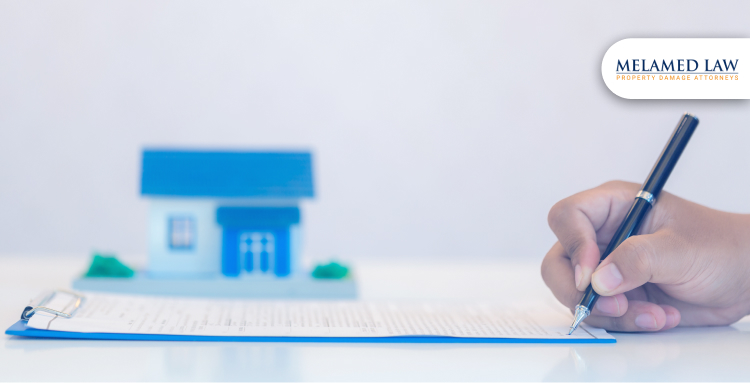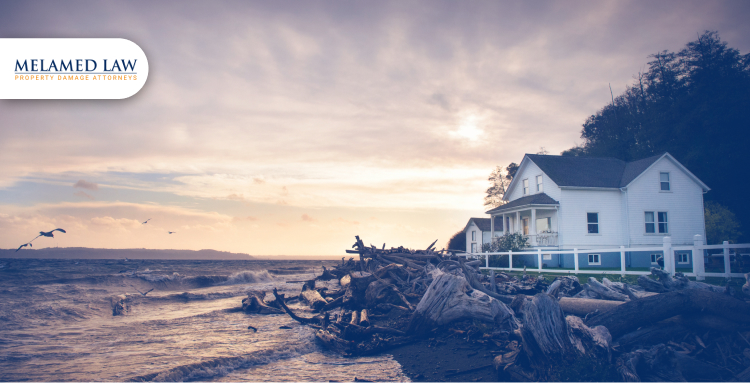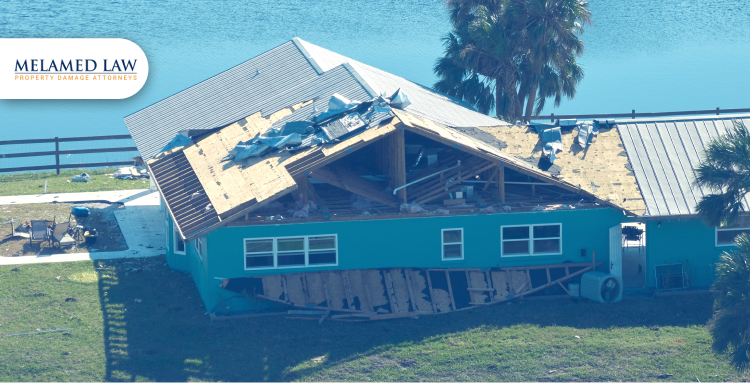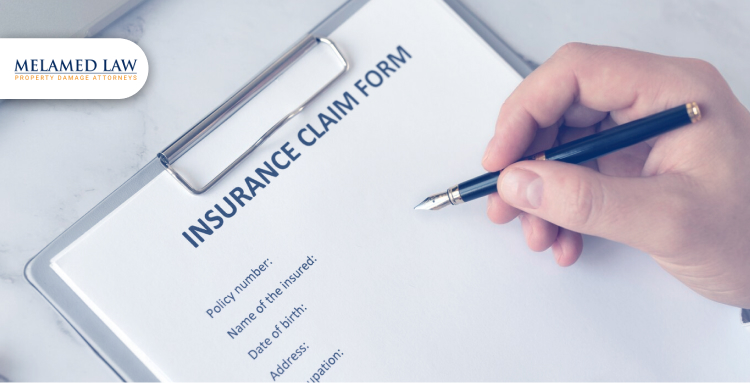
How Florida's Hurricane Season Affects Property Insurance Litigation
When the unexpected happens, we help individuals and businesses collect the money they deserve for their insurance claims.
Property Damage
December 29, 2024
How Florida's Hurricane Season Affects Property Insurance Litigation
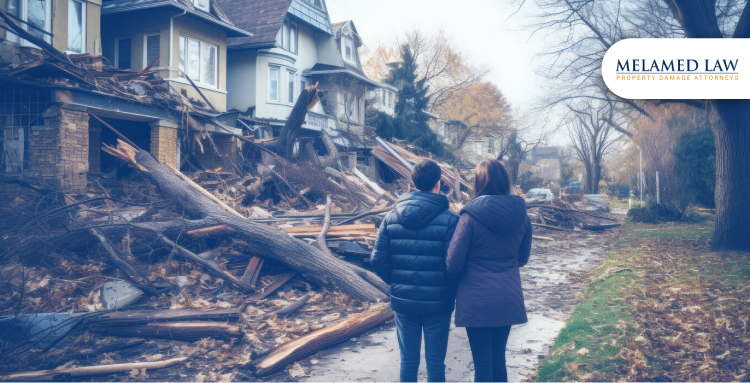
Hurricane season in Florida isn’t just about surviving the wind and rain—it’s about picking up the pieces afterward. From broken windows to flooded homes, the real battle often starts once the storm passes. Property owners turn to their insurance companies, expecting help, but instead, many find themselves facing denials, delays, or lowball offers. It’s frustrating when, after protecting your home and paying premiums year after year, your claim gets undervalued or denied altogether.
Now let’s dive into how Florida’s hurricane season impacts property insurance litigation, what policyholders should expect, and how to navigate these challenges effectively.
Florida’s Insurance Laws: Timelines and Regulations That Affect Your Claim
In Florida, when it comes to hurricane damage, time isn’t on your side—there are strict deadlines that homeowners need to follow to keep their claims valid. First, you’ve only got one year from the date you discover the damage to report your claim. That may sound like plenty of time, but after a storm, it’s easy to get overwhelmed with repairs, estimates, and trying to get your life back on track.
Now, if your insurance company plays hardball or delays processing your claim, you still have some breathing room. Florida law gives you five years from the date of the storm to file a lawsuit if you believe your insurer didn’t do right by you. But waiting too long to act can weaken your case, which is why it's important to stay on top of these deadlines.
There’s another lifeline for you - mediation. Before things get messy in court, Florida allows homeowners to request mediation with their insurer to try and work things out. This can be a great option, but it’s not always straightforward.
Key Insurance Coverages for Hurricane Damage: Are You Protected?

When it comes to hurricane damage, understanding your insurance coverage can feel like trying to read a foreign language. Each policy has different rules, exclusions, and fine print, and if you don’t know what to look for, you could end up with less compensation than you deserve. Let’s break down some of the key coverages you’ll need to know after a storm.
Windstorm Coverage
Windstorm coverage helps pay for damage caused by hurricane winds—think roof damage, broken windows, or downed fences. It sounds simple, but insurance companies often try to downplay the extent of wind damage or say the damage was caused by something else (like pre-existing wear and tear) to reduce payouts. These disputes can drag on for months unless you have someone fighting for you.
Hurricane Deductible
In Florida, most policies include a hurricane deductible, which is usually a percentage of your home’s insured value rather than a flat dollar amount. This can catch a lot of homeowners off guard because it means you could be on the hook for thousands of dollars before your insurance even kicks in. Knowing how your deductible works—and planning ahead—can make a big difference when you’re ready to file a claim.
Flood Insurance vs. Homeowner’s Policy
Here’s a major headache- most homeowner’s policies don’t cover flood damage. That means if your home gets flooded due to a storm surge, you’ll need separate flood insurance (usually through FEMA) to cover the repairs. This gap in coverage results in one of the most frequent disputes we encounter—insurers often contend that the damage was caused by flooding rather than wind, seeking to deny your claim in the process.
Loss of Use Coverage
If your home becomes uninhabitable after a hurricane, loss of use coverage can help with temporary living expenses—think hotel stays, meals, and other essentials. But, as you can guess, insurers aren’t always quick to offer these benefits without a fight.
Common Disputes Leading to Property Insurance Litigation

Dealing with insurance companies after a hurricane can feel like a storm all on its own. Too often, instead of getting the support you were promised, many homeowners experience frustrating delays, unjust denials, or offers that fall short of covering necessary repairs. Below are some of the most common disputes faced by homeowners—and how Melamed Law can assist you in resolving them.
Hurricane vs. Flood Damage Disputes
One of the oldest tactics in the insurance playbook is to classify damage as “flood-related,” thereby shifting the responsibility to flood insurance, which many homeowners may not even possess. For instance, if wind damage creates a breach in your roof that allows rain to enter, the insurer might contend that it’s water damage resulting from flooding, which is typically not covered by standard policies. This ongoing back-and-forth can leave you in a precarious position, with no payout in sight.
Underpaid Claims
Even when your claim is approved, insurers frequently respond with low-ball offers that barely cover the necessary repairs to your home. They may rely on cursory estimates or adjusters who underestimate the extent of the damage, hoping you will simply accept their offer and move on. However, your property—and your peace of mind—are worth significantly more than that.
Deductible Conflicts
In Florida, hurricane deductibles are typically higher than standard deductibles, often calculated as a percentage of your home’s insured value. Many homeowners are taken aback when they discover the substantial amount they must pay out of pocket before their insurance coverage activates. Additionally, insurers may miscalculate your deductible or apply it in an inequitable manner, leaving you in a difficult position as you scramble to cover the difference.
How Melamed Law Fights for You
With years of experience negotiating and litigating property insurance disputes, we know exactly how to counter these tactics and secure the compensation you deserve. Whether it’s challenging misclassified damage, negotiating fair repair costs, or holding insurers accountable for high deductibles, we fight to make sure you’re treated fairly.
Bad-Faith Insurance Practices: Know Your Rights as a Homeowner

Navigating the aftermath of a hurricane can be tough, but dealing with an insurance company that doesn’t play fair is an even bigger headache. Bad-faith practices are more common than you might think, and they can leave homeowners feeling frustrated and powerless. Here’s what you need to know about these practices and your rights as a policyholder.
Examples of Bad-Faith Practices
Bad faith can manifest in numerous ways. Insurers may unnecessarily delay processing your claim, leaving you in a state of uncertainty as you attempt to rebuild your life. In some cases, they might outright deny valid claims without conducting a thorough investigation, using vague excuses or citing fine print that is not applicable. Imagine having a legitimate claim denied simply because the adjuster failed to verify all the facts—this constitutes bad faith, and it is entirely unacceptable.
Legal Remedies for Bad Faith
If you find yourself a victim of bad faith, you’re not without options. Florida law allows homeowners to pursue extra-contractual damages against insurers that act in bad faith. This means you could potentially recover more than just your initial claim amount—think about damages for emotional distress, financial losses, and even punitive damages designed to punish the insurer for their misconduct.
How Melamed Law Fights for Your Justice
We take bad faith seriously. We know how to relentlessly pursue insurers that try to sidestep their responsibilities. Our team fights for your rights and ensures that you receive the compensation you need, no matter how many tactics the insurer throws at you. When you face an unfair denial or a delay that drags on, we’re here to hold them accountable. Your fight is our fight, and we won’t rest until justice is served.
Recent Changes in Florida’s Insurance Landscape: What You Should Know

The insurance landscape in Florida is constantly evolving, especially in the wake of hurricane seasons that leave behind damage and disputes. Recent legislative changes can create additional hurdles for homeowners trying to navigate their insurance claims. Here’s what you need to know about these changes and how they impact you.
Attorney Fees Restrictions
One of the most significant changes has been the restriction on attorney fees in small disputes. This means that if your claim is below a certain dollar amount, you may find yourself navigating the situation without legal representation—making it significantly more difficult to contest lowball offers or unjust denials. This can discourage homeowners from seeking legal assistance, ultimately leaving them at the mercy of their insurance companies.
Assignment of Benefits (AOB) Reform
Another key change is the reform of the Assignment of Benefits (AOB) process. AOB allows homeowners to assign their insurance benefits to contractors to expedite repairs. While this can streamline the process, it also opened the door to abuse—contractors could inflate costs and file claims without proper oversight. The recent reforms aim to protect homeowners from potential fraud, but they can complicate the relationship between homeowners and contractors, creating further challenges when filing claims.
How Melamed Law Fights for Your Justice
At Melamed Law, we stay on top of these changes to ensure our clients are protected. We understand how the latest restrictions and reforms can impact your rights as a homeowner. Whether you’re facing a small dispute that could use legal insight or dealing with AOB issues, we’re here to advocate for your best interests. With our finger on the pulse of Florida’s ever-changing insurance landscape, you can trust us to provide the guidance you need to secure a fair resolution after the storm. Let us help you turn the tide in your favor.
Legal Support with Melamed Law – Your Advocate During Hurricane Season
Dealing with the aftermath of a hurricane can be extremely stressful, particularly when it comes to insurance claims. The importance of having legal guidance during this critical time cannot be overstated. Insurance policies are complex, and the stakes are high—your home, your finances, and your peace of mind hang in the balance. With Melamed Law by your side, you can approach the claims process with confidence, knowing you have a dedicated advocate fighting for your rights.
Don’t wait for the next hurricane to hit before you prepare. If you’ve been affected by a recent storm or want to ensure your claims process goes smoothly, contact Melamed Law today for a free consultation. We’ll provide personalized assistance tailored to your specific needs, so you can focus on what truly matters—getting your home and your life back on track. Let us be your advocates during hurricane season and beyond.
Recent Cases
